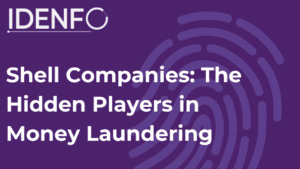The role of technology in name screening is becoming increasingly important in today's world. With the rise of global threats such as terrorism, money laundering, and sanctions violations, governments and financial institutions are under more pressure than ever to screen individuals and organizations against watchlists and other databases. But as the number of names to be screened and lists grow, the task becomes increasingly complex and time-consuming. That's where technology comes in, automating the process to make it faster, more efficient, and more accurate.
Here are some ways in which technology is transforming name screening:
Time Saving
One of the main benefits of technology in name screening is speed. In the past, name screening was a manual process that involved searching through lists of names and manually comparing them to known watchlists. This was a time-consuming process that required a lot of resources, and it was difficult to keep up with the constantly changing landscape of watchlists and databases. But with the advent of technology, name screening can be done in a matter of seconds, allowing businesses and institutions to quickly identify potential risks and take action.
Enhanced screening
Accuracy is another important benefit of technology in name screening. Human error can occur during manual screening, leading to false positives or false negatives. But with technology, the risk of error is greatly reduced. Automated name screening software can quickly and accurately compare names against multiple databases, reducing the likelihood of mistakes and ensuring that potential risks are identified.
Facilitates large volumes of data
Another benefit of technology in name screening is its ability to handle large volumes of data. Financial institutions and government agencies are required to screen thousands or even millions of names every day, making manual screening virtually impossible. But with technology, name screening can be done on a massive scale, quickly and efficiently processing large amounts of data to identify potential risks.
Moreover, there are a variety of technologies available for name screening, each with its own strengths and weaknesses. Some of the most common technologies include rule-based screening, fuzzy matching, and machine learning:
Rule-based screening
This involves setting up a set of rules or criteria for screening, such as exact name matches or matches based on specific keywords. This type of screening is simple and straightforward, but it can also lead to a high number of false positives or false negatives.
Fuzzy matching
This, on the other hand, uses algorithms to identify potential matches based on similarities between names, even if they are not exact matches. This can help reduce the number of false positives and false negatives, but it requires more advanced technology and may be more complex to set up.
Machine learning
Yet another technology that is becoming increasingly popular for name screening. This involves training a computer program to recognize patterns and make predictions based on large amounts of data. The more data the program is exposed to, the more accurate it becomes over time.
Name screening solutions are crucial for businesses
Technology is an essential component of name screening, providing the speed, accuracy, and scalability needed to identify potential risks efficiently and effectively. From handling large volumes of data to leveraging artificial intelligence and machine learning algorithms, technology offers a range of benefits that make name screening more efficient and effective. As the threat landscape continues to evolve, it is likely that technology will become even more important in the fight against global risks. For organizations that want to mitigate the risks of financial crimes and ensure compliance with regulatory requirements, innovative technology solutions like Idenfo Direct Oman's name-screening feature are crucial.
Idenfo Direct Oman's Technologically Advanced Name-Screening Feature
Idenfo Direct Oman's Name-Screening feature is technologically advanced and offers a range of benefits to organizations that want to streamline their screening processes. By automating the process of identifying and verifying individuals or entities against global watchlists and sanctions lists, the solution ensures high accuracy and efficiency in the screening process. The solution's ability to handle large volumes of data in real-time is particularly important for organizations that deal with a high number of transactions. With its comprehensive audit trail, Idenfo Direct’s name-screening feature offers an essential tool for organizations in Oman that want to reduce the risks of financial crimes and demonstrate their compliance with regulatory requirements.
Overall, leveraging the power of advanced technology, such as Idenfo’s name-screening feature can help organizations to streamline their screening processes and minimize the impact of false positives or false negatives. As financial crime continues to be a significant risk for organizations around the world, name-screening features are becoming increasingly critical for ensuring compliance and mitigating risk.









